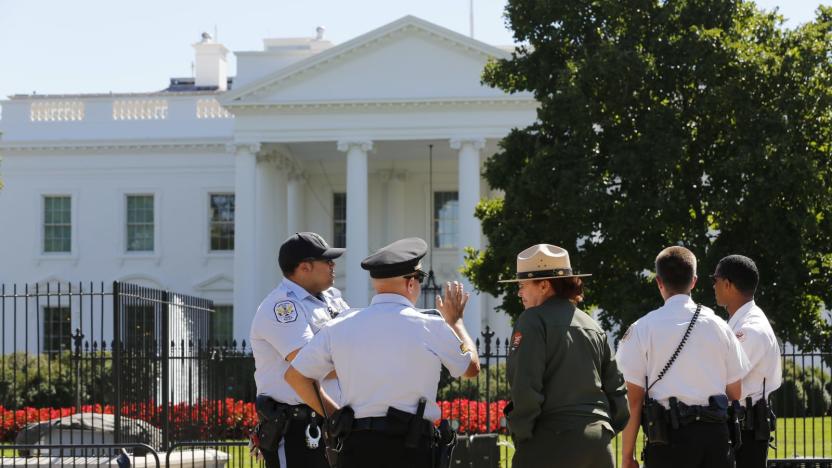PresidentialPolicyDirective
Latest

Reuters: White House to appoint first federal cyber security chief today (updated)
According to Reuters, the White House will appoint Retired Air Force Brigadier General Gregory Touhill as the nation's first federal cyber security chief, a position tasked with dictating cybersecurity policy for the entire federal government. It's an announcement that's been a long time coming. After watching US networks suffer a series of embarrassing attacks last year, President Obama pledged to shore up federal cybersecruity efforts, creating a Commission on Enhancing National Cybersecurity and announcing a Cybersecurity National Action Plan. The latter promised to create a Federal Chief Information Security Officer to help protect US systems from future threats. General Touhill, it seems, is our man.

White House outlines how the US will respond to cyberattacks
The US government is understandably worried about cyberattacks as of late, and it's now setting some ground rules for how it responds to those digital intrusions. A newly approved Presidential Policy Directive details just how officials will coordinate responses to hacks and other "cyber incidents." including its basic principles, outlining procedures and creating mechanisms that link the actions that link government divisions. Provided everything goes according to plan, officials would not only learn to share responsibility and resources when fending off attacks, but better understand the risks associated with a given crisis.

Obama ordered cyber attack target list to be created, according to leaked document
President Obama hasn't been shy about engaging the public and other nations on digital issues, and that includes the idea of cyber warfare. While his administration has been pretty aggressive in building up our cyber defenses, our offensive capabilities have remained somewhat more mysterious. According to a leaked document obtained by the Guardian, the White House has made moves to seriously step up its digital arsenal. In fact, it appears that a Presidential Policy Directive issued in October (though, never released for public consumption) ordered that a list of over-seas targets be drawn up for potential future offensives. Offensive Cyber Effects Operations (or OCEOs) are cited in the directive as having "unique and unconventional capabilities to advance US national objectives around the world." It then goes on to say that the government will, "identify potential targets of national importance where OCEO can offer a favorable balance of effectiveness and risk as compared with other instruments of national power." The more aggressive approach to battling foreign nations through the internet is likely to raise concerns in certain circles about the weaponization of the web. Of course, such fears about militarization aren't completely unwarranted. But with countries like China posing serious digital threats, government officials will likely see the moves as necessary. The document also says that any operations must abide by US and international law, though, we doubt any suggestions that our government blatantly ignore such rules would ever be put down on paper. The leak of the document follows hot on the heels of the growing PRISM scandal, which has put the nations digital policies front and center in the public's mind.


